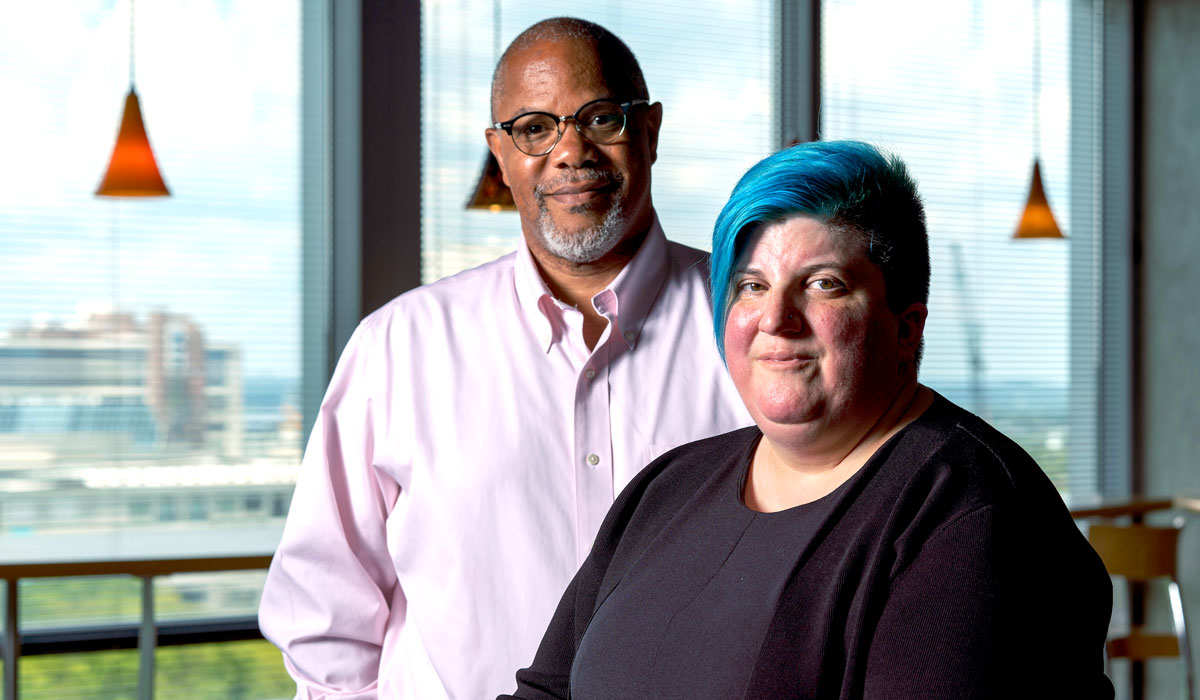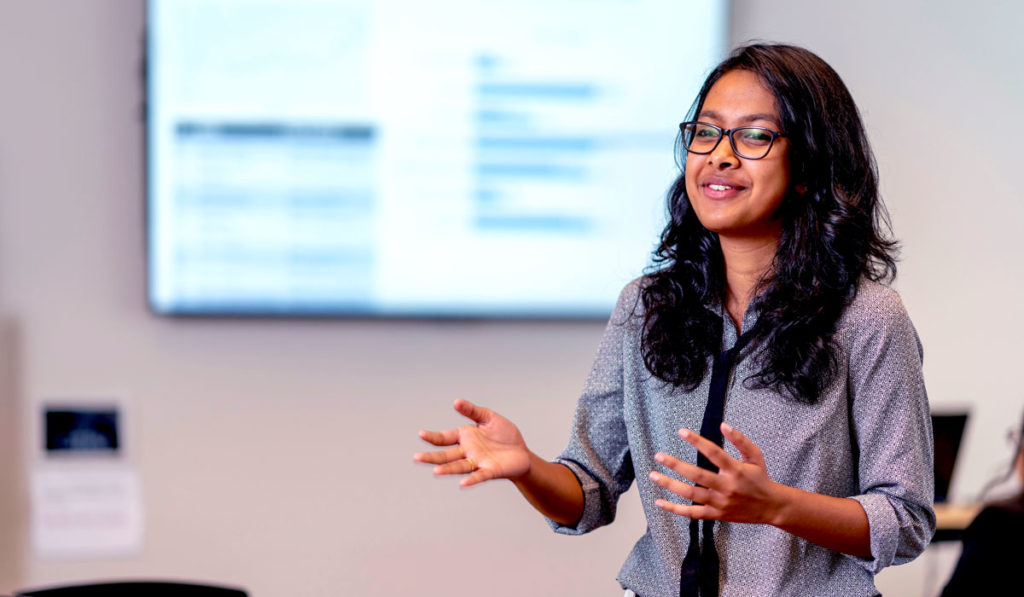Biomedical informatics works in the context of clinical and public health systems to develop experiments, interventions, and approaches that have scalable impact in improving human health. However, because it draws from several disciplines, finding a path into the study of biomedical informatics is not always straightforward or easy. And, ensuring that diverse voices are included is even more difficult.
“Biomedical informatics draws from fields that are lagging when it comes to diversity.”
“Biomedical informatics draws from fields that are lagging when it comes to diversity,” said Kim Unertl, Ph.D., assistant professor of biomedical informatics at Vanderbilt University Medical Center. “The question for us has been ‘How can we get messages about career paths in biomedical informatics to more people earlier in their education or career?’”
Since 2008, the Vanderbilt Department of Biomedical Informatics Summer Program (VBISP) has been giving students from diverse backgrounds an early introduction to biomedical informatics. Exceptional students from computer science, information science, cognitive science, social science, engineering, and clinical and basic biological sciences, are encouraged to apply. The program is funded by the National Library of Medicine and the National Science Foundation Research Education for Undergraduates.
Emphasis on Outreach
“To expand pathways into biomedical informatics, you need a ‘windows, mirrors and open doors’ educational framework,” said Kevin Johnson, M.D., professor and chair of biomedical informatics at Vanderbilt. “First, students need to learn that informatics exists as a field of study. Second, they need to see themselves reflected in the field. And finally, we need to help open the doors by providing students from diverse backgrounds with a high-quality biomedical informatics research experience and encouraging them to pursue Ph.D.s and research careers in the field.”
“You need a ‘windows, mirrors and open doors’ educational framework.”
The paid, 8- to 10-week summer program has grown from two students in 2008 to 24 in 2019. It has evolved over that time to include several unique programmatic elements, recently described in the Journal of American Medical Informatics Open. This year, in addition to undergraduate and graduate students who apply from across the U.S., VBISP received a training grant supplement that funded four high school and four community college students.
Said Unertl, “There are other biomedical informatics internship programs out there, but we have a unique emphasis on educational outreach. For high school, we’ve chosen a partnership model; we really wanted to connect with a local high school and build a relationship with teachers as a way to recruit and give something back to the school. We’ve never had community college students before; this is new for us. Each group has different metrics for success.”
Lab Match Approach
Faculty-mentored projects allow students to actively apply information technology to address healthcare challenges. “We invite each student to participate in a lab,” said Unertl, who leads VBISP along with program manager Rischelle Jenkins. “Faculty members submit a list of projects; once we’ve learned about the students, we hand match the student to the lab. We provide some instruction, but we expect them to learn on the job.”
Program participants attend the Summer Seminar Series, to acquaint them with a wide range of informatics research questions, methods and approaches. They also benefit from the broader Vanderbilt Summer Science Academy, which provides enrichment seminars such as guidance and preparation for graduate school entrance exams.
“In the past, we’ve relied on mentors to help the students make connections,” Unertl said, “but this summer, we’ve added a research skills course because everyone comes from a different background and not everyone is exposed to some of the basic skills you need in science: networking; how to put together a poster and make a presentation; how to deal with challenging issues if you’re from an underrepresented background.” The course uses validated approaches and is led by a former VBISP student now pursuing his Ph.D. at Vanderbilt.

Diverse Project Roster
Projects this year touch on topics from voice recognition for healthcare settings to cancer patient safety. Two students sponsored by IBM Watson Health worked on an AI-based clinical decision support project and traveled to IBM headquarters in Massachusetts. Four students, including two high school students, helped Unertl’s lab evaluate data about multiple women’s health apps.
“This is a great group of kids,” said Johnson. “Every year our cohort keeps getting better and better.”






